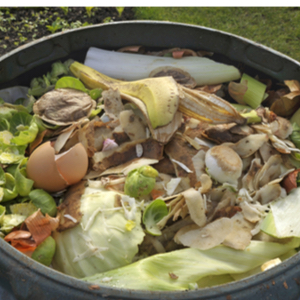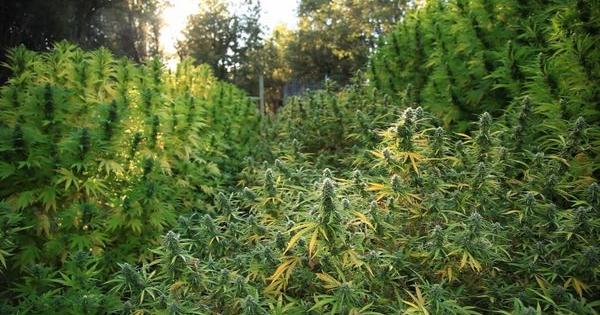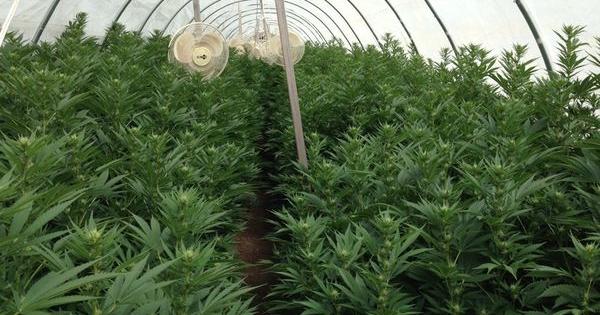- Saving the planet has become an increasingly urgent concern, and we as growers can do our part by switching to environmentally friendly growing methods.
- In this article, we’ll look at compost tea, a nutrient solution that keeps plants fed and protected in a totally natural way.
- From its benefits to how to make your own, here’s everything you need to know about compost tea.

Compost tea in cannabis growing
Compost tea is a nutrient solution made from composted organic matter, mainly organic household waste, that feeds and protects cannabis plants while improving soil health.

In fact, because it is rich in live microorganisms – bacteria, fungi, protozoa and nematodes – which cause plants to decompose triggering a number of beneficial mechanisms, compost tea is a great way of improving soil biological activity, aeration and structure.
Essentially, what these microorganisms do is build a natural synergy that has a lot to do with the idea of "soil life", a series of hierarchical biological processes that are yet another proof of how smoothly things work in nature.
Besides providing plants with all the necessary nutrients for healthy growth, compost tea plays also a protective role, notably at root level, reducing the risk of pests and mould growth.
Similarly to compost tea, actively aerated compost tea (AACT) is made from composted organic matter, but with the difference that it is rich in oxygen.
Benefits of feeding compost tea to your cannabis plants
These are the main benefits of using compost tea:
- Improves soil structure and oxygenation – and thus soil life
- Cannabis plants grow more vigorously
- Nutrients are absorbed faster
- Risk of pests and mould growth is drastically reduced
- 100% pesticide-free
- Multipurpose (suitable for fungi, bacteria, nutritional deficiencies, growth, bloom, etc.)
- 100% organic and environmentally friendly
- Inexpensive and simple to brew
List of ingredients for brewing your own compost tea
These are the ingredients and tools you'll need for your compost tea:
- A container in which to mix and keep the ingredients of your actively aerated compost tea. Preferably, choose a durable model fitted with a tap – this will ease the work considerably – and make sure the capacity is 25% larger than required for the amount of compost tea you intend to brew. If your grow is small to medium-sized, you may use a container for collecting rainwater (200-300 L). As a rule, small grows of one to two square metres can be handled with a container capable of storing up to 30 litres, while large grows (1 ha) will normally require a capacity of about 1,500 to 2,000 litres.
- A filtering mesh of about 400 µ that is large enough to handle all the composted organic matter, as well as the fertilisers necessary for its preparation. This will release microorganisms and other naturally proliferating elements directly into the solution.
- A fish tank air pump with a minimum capacity of 300 litres/hour, which will allow you to produce from 15 to 20 litres of oxygen-rich compost tea.
- A mixing pump for a uniform texture.
- A watering can or system that is suited to the size of the grow.
- Optionally, a fish tank heater for boosting the activity of the microorganisms.
- 250 ml of organic green molasses.
- 10 litres of high-quality organic compost, preferably self-produced. The key here is to make sure it is fully matured and decomposed. Alternatively, you can get yourself some ready-to-use compost, but bear in mind that it will never be as high quality as if you make it yourself.
- 10 litres of chlorine-free water. You can eliminate excess chlorine by filtering the water or by letting it evaporate for 24-30 hours. PH levels should be neutral or close to 7.
How to brew your own compost tea
Follow the steps below for a perfect brew:
- Place the 10 litres of compost in the fermenter (a brewing container with a minimum capacity of 25-30 litres) and gradually pour the 10 litres of chlorine-free water.
- Add the organic molasses (250 ml).
- Stir vigorously by hand or using a pump to speed up the mixing of the organic ingredients and thus the natural symbiosis of the microorganisms they contain. Keep mixing until the solid ingredients float on the surface, making sure the temperature of the mixture is kept between 18 and 22 ºC.
- Leave to ferment for 24 hours – for a bacterial compost tea – and pump oxygen into the solution at regular intervals (15-20 min/h) with the air pump. This will promote air and water circulation through the composted organic matter, allowing the microorganisms to be transferred from one medium to another. In order to ensure a uniform texture that is also well oxygenated, the air pump should be alternated with the mixing pump (10-15 min/h). Once the mixture has fermented for 24 hours, leave it to sit for 10-20 minutes and filter. You'll know the compost tea is ready for use when the froth that forms on the top dies down. And there you go! You can now feed the compost tea to your plants, either as foliar spray or supplied to the roots with irrigation water.
- High quality compost tea will have a nice smell, similar to that of soil and yeast mixtures. If your compost tea doesn't smell like it should, it will probably mean that it has been poorly oxygenated, mixed or diluted – due to an excess of compost – that there is a deficiency of active microorganisms – this can be solved by adding molasses – or that it has been stored for too long. You should always use your compost tea within 4-6 hours of brewing. Although not recommended, you may extend this time period to up to 15 hours if you keep the tea somewhere cool, oxygenating it at regular periods. However, at the first sign that your compost tea has gone off, you should always discard it and brew some new.
- Preparation time: Brewing bacterial compost tea will take you some 24 hours. Fungal compost tea, instead, has a preparation time of 24 to 36 hours, while protozoan compost tea should be ready in about 48 hours.
- Application frequency: Apply it twice a month if it's plain compost tea – without plants or supplements – for soil balance, and three times a week if the solution has been enriched with plants and supplements for fertilisation.
- Never use products that are not fully decomposed, as this could attract pathogens.
How to enrich your compost tea

As you become a more experienced grower, you may choose to use more sophisticated recipes including ingredients like spirulina, biochar, kelp seaweeds, hydrolysed fish and soluble bacteria. Micronised azomite, for instance, will cover your plants' full spectrum needs in trace elements, Epsom salt will allow you to deal with magnesium deficiencies and chabazite zeolite will stabilise the brew.
You can add each of these ingredients at a concentration between 0.1 and 1%, always making sure you get a balanced ratio in terms of the amount of compost you produce and the amount of water you use. Also, pay attention to the amount of live microorganisms present in the solution, and make sure you keep it well aerated and under good preservation conditions. Using too many ingredients could lead to anaerobic fermentation because of lack of oxygen, which could in turn increase the risk of pests and diseases. So exercise some caution and only experiment with new recipes when you feel your skills are up to the challenge.





Comments from our readers
Read comments in other languages:
Did you like this post?
Your opinion about our seeds is very important to us and can help other users a lot (your email address won't be made public).